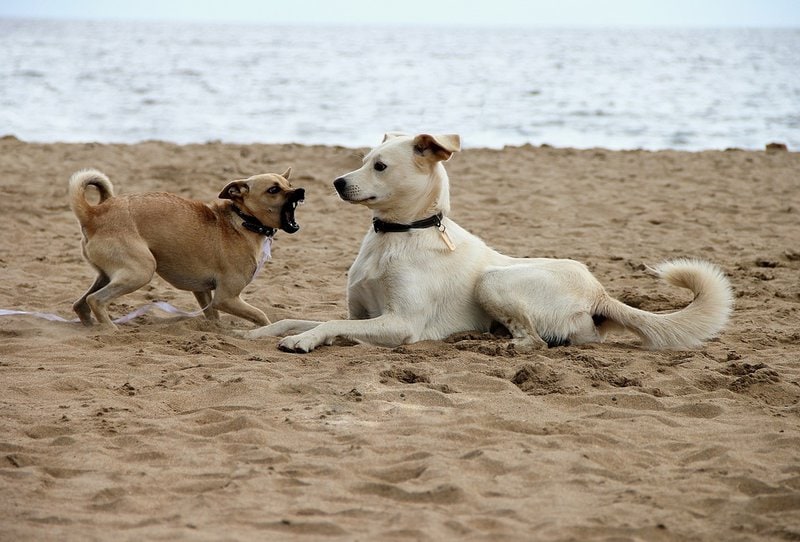Dogs communicate to other dogs and to us by barking. Some breeds are known to bark a little more than others, but this is their way of expressing how they feel or convey a message. But the question is – why do dogs bark at other dogs?
Fear is one of the reasons why your pooch may be barking at another dog. It could also be that a pup had a certain experience (good or bad) with the other pooch, hence the reason for barking. And at other times, it is a way for them to express frustration.
Let’s go through the many reasons for this behavior to understand pups more when they bark at other dogs.
16. Seeking Attention
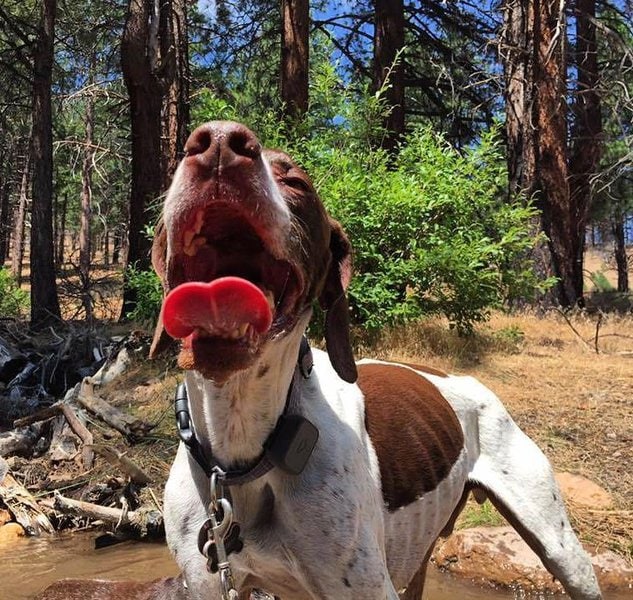
Some canines bark at other dogs to seek attention. It’s their way of trying to catch the attention of others, perhaps to play with them or simply to express their emotions. When they bark to seek attention, they tend to wag their tails at the same time to show interest in the other dog.
You may observe your pup barking at another pooch while playing at the dog park or when seeing other canines on the street. It is best not to reprimand your pet when he does this, especially if he is only being friendly to the other dog.
15. Undersocialization
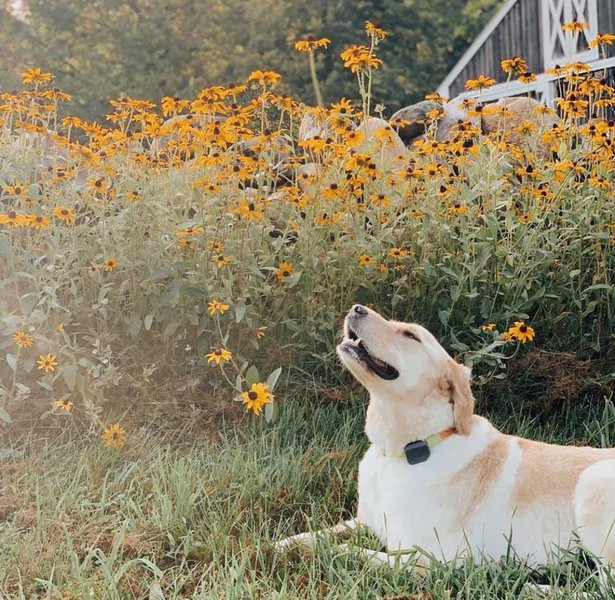
In the case of dogs that have been leashed and closed off to the outside world for most of the time, they tend to be undersocialized and don’t know how to deal with other canines. So, they may bark at the sight of other pups, not knowing how to interact with them.
There is another body language accompanied by the barking, such as pulling on their leash, as a sign of nervousness around other dogs. This is why the socialization of your pet is important to prevent this reactive behavior and to help him be at ease more in such situations.
14. Playfulness
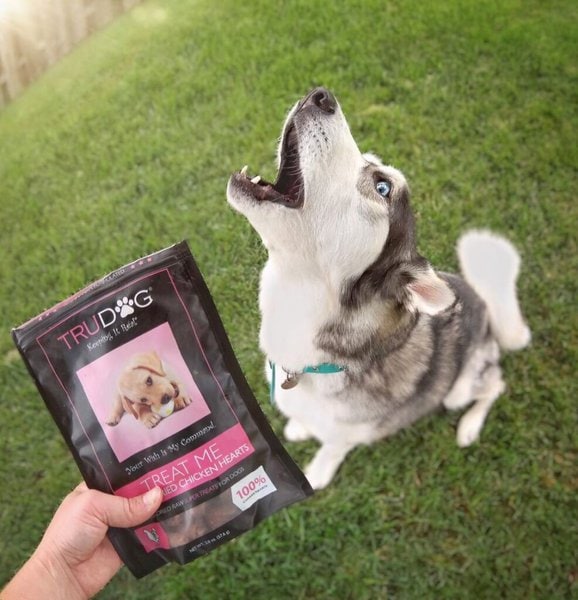
There are dogs that bark just because they want to play with other pups. This is a sign of excitement and eagerness to be fur-pals. When they bark because of this reason, you will see them wagging their tails and bowing their front legs.
If your pup expresses the desire to play with another pooch by barking, then there is no reason to be alarmed. Just make sure you supervise your pet, especially in the case of bigger dogs wanting to play with smaller pups.
13. Socialization
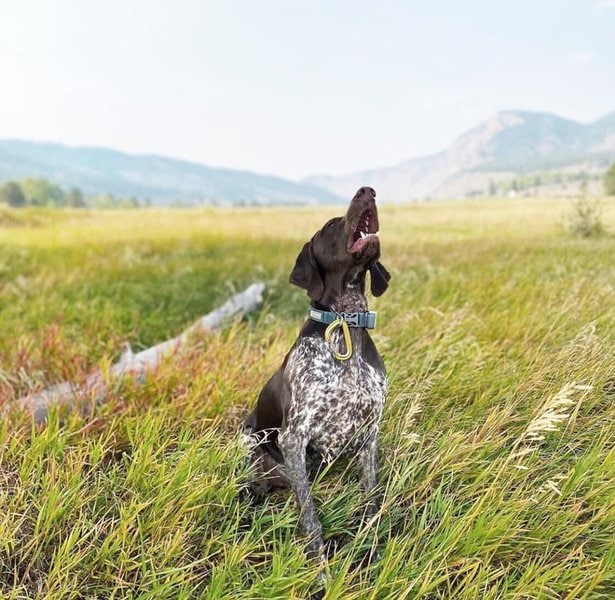
We’ve mentioned earlier that some dogs bark because of little to no socialization experience. But there are pups who bark because they want to socialize and be friends with everyone in the dog park!
It’s also possible for other dogs to chime in and bark or howl after hearing other pooches in the neighborhood barking. Even if they don’t see each other, barking together is like a social activity for them.
12. Boredom
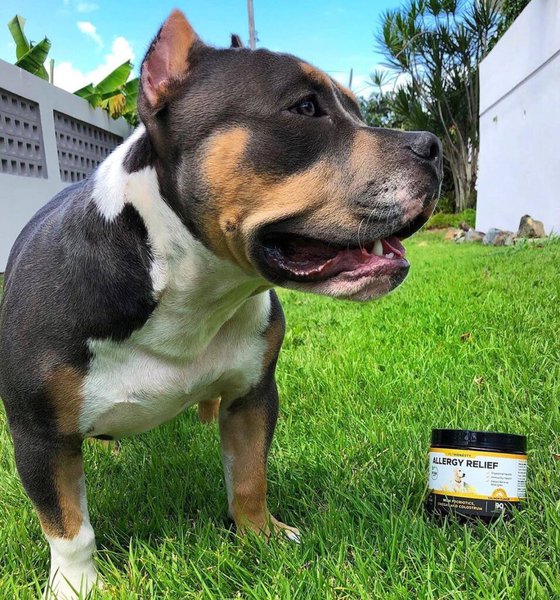
If you hear your dog barking once you get home after being away for hours, then it’s his way of expressing boredom. Bored pups bark when they have too much energy that has built up over time.
When your pooch barks because of this, be sure to give them cuddles or play with them. You may even walk them through getting this pent-up energy out.
11. Fight Or Flight

Pooches that are tethered to their leash or stuck at home or behind a gate tend to bark when they see other dogs as a fight or flight response. They may be stressed and are unsure of any other way to react, so they just bark.
Some dogs like to be able to smell or greet other canines when they pass by. But because they are restrained, they are unable to do so, they bark and this can lead to a stress response.
10. Greeting

When humans see other humans, they say “hey” as a way of greeting each other. With dogs, they greet other pups by barking. It’s not the kind of bark when they are angry or bored but has a more excited or eager tone to it.
Aside from barking, pups may also whine about greeting another. This is the case with pup friends, so there’s no need to be alarmed if your pet barks for this reason.
9. Aggression
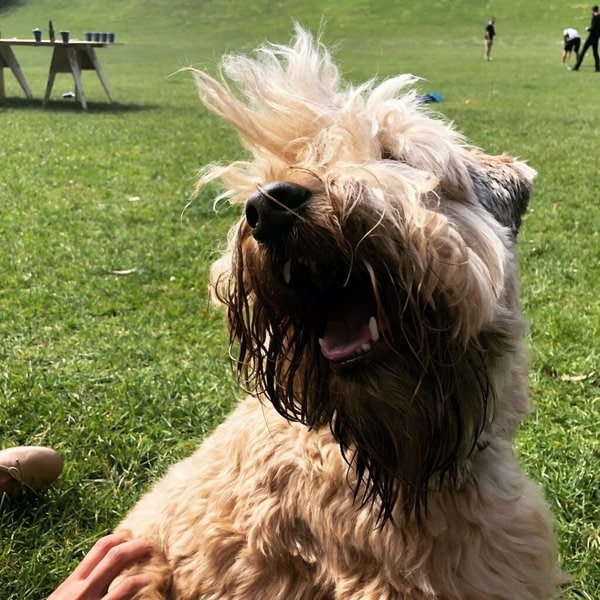
Contrary to popular belief, canines that bark is not always aggressive. They may seem intimidating when they bark loudly, but all they are doing is to deter intruders or as a way to protect their owners from threats.
Pups may assume other dogs are trying to get into your yard to cause trouble. So, they bark to ward them off or to warn them instead of acting violently.
8. Separation Anxiety

Some dog breeds are more prone to develop separation anxiety. This is why they bark as a way to self-soothe when they become anxious or fearful. It is also common for some pups to bark when they are left by themselves in the house.
A bark that expresses anxiety is often high-pitched and constant. They may also whimper and pace back and forth, which are signs of anxiety. If your pet acts this way, it will help to make some arrangements to prevent anxiety-provoking circumstances for him.
7. Alarm-Barking

Alarm-barking is another reason why dogs bark at other dogs. Your pet may be barking at just about any sight or noise, no matter what the context may be. But it’s different from being territorial since your pooch also barks to alarm others of a threat in another location.
Canines engaged in this type of barking move a couple of inches forward when they bark. Their bodies are also stiffer, as though they are nervous.
6. Compulsion
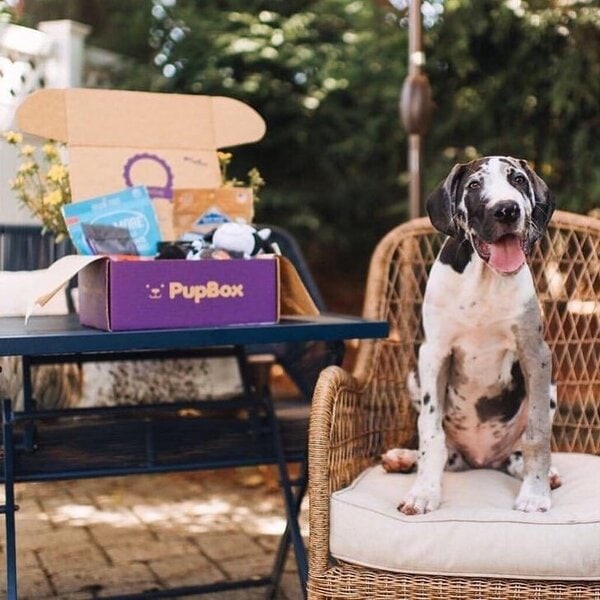
Barking may also be a form of compulsion. There are pups that simply bark excessively and sometimes, repetitively, as though a broken record. They may not have a reason to bark but merely because it’s a compulsion.
Compulsive barking is usually associated with running back and forth in the yard or constantly pacing in the house. It can help to divert your pet’s attention and give him something to do, so he will stop barking.
5. Discomfort
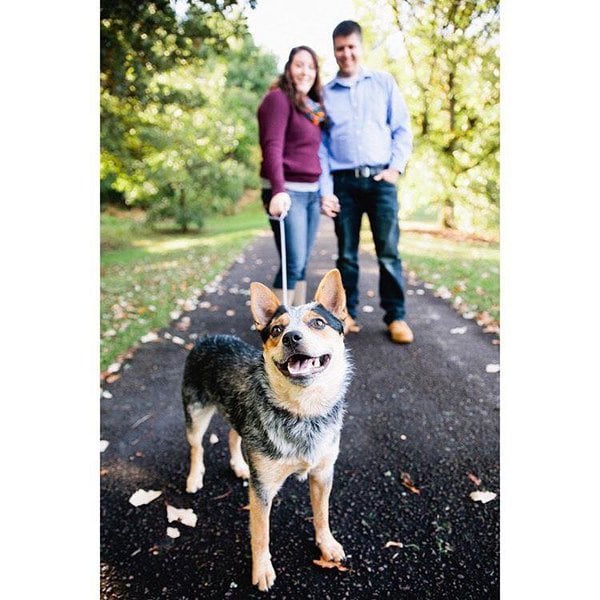
Whatever may bring discomfort to your pooch, whether it is pain or seeing another dog, may also lead to barking. A pup may bark intensely if it is caught in a very uncomfortable situation with another dog.
However, it is not a form of aggression. Instead, it is more like a strong reaction to a dog that causes your pet distress. So, your pooch barks to tell the other dog to go away and leave him be.
4. Territorial Behavior

If you have a pup that barks at someone at the door or even at dogs walking by your yard, then it is a sign of territorial behavior. Your pet treats your home or even you as his territory. So when other dogs come close to you or your home, then your pooch barks.
Territorial barking is a dog’s way of saying, “this is my home, and I’m protecting it.” This is a natural reaction, and the barking stops once the potential intruder has left the territory.
3. Frustration
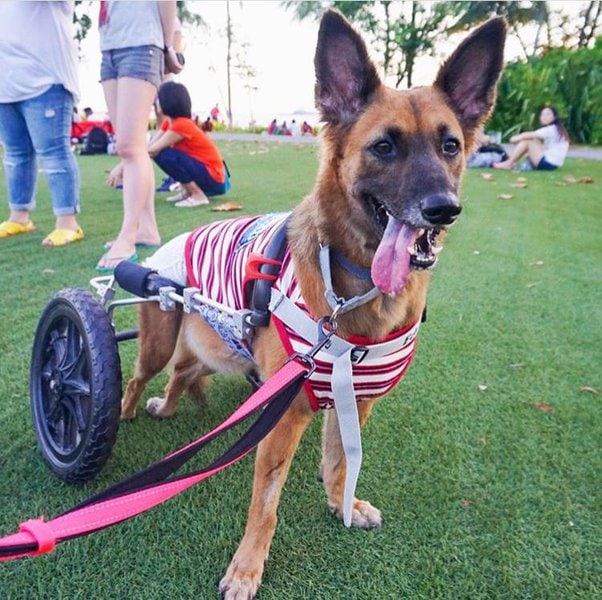
There are many reasons why a dog may experience frustration. They may be stuck at home and not allowed to go out, or they may be confused and not understand a situation. Some canines may also not know the intention of the other dog, and so they bark.
In other circumstances, a dog may not have easy access to play with another dog, which causes frustration. When your pet is in such a situation, he may bark to tell you he is frustrated.
2. Historic Reason
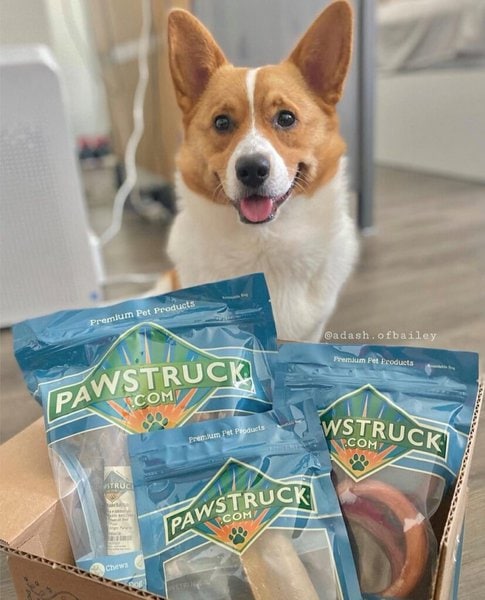
If your pooch has a previous encounter with another dog, whether good or bad, this may cause him to bark. Previous interactions and traumas are powerful triggers, and just the scent of the dog that caused these memories to resurface can lead to barking.
It is also possible that your pup had a negative experience with a big Pitbull and now tends to bark at every Pitbull. Barking may have a historic reason, which explains this behavior.
1. Fear

Tiny dogs have a reputation for being too verbal, such as the Chihuahua and Yorkshire Terrier. Their bark is their weapon or protection against larger predators for these pups with diminutive bodies.
When your small dog barks with a lower pitch, or it lasts longer than usual, then it is his way of expressing fear. Other canines may also growl when playing with other pups when they suddenly feel afraid or uneasy.
Related Questions
Why Do Dogs Bark At Other Dogs Walking By? Dogs bark at other dogs walking by to greet them or to express a desire to socialize. Whereas others may occasionally bark as a sign of aggression or territorial behavior.
How Do I Stop My Dog From Barking At Other Dogs? First, recognize how your pet is feeling. If the barking is caused by discomfort or anxiety, then you should address this accordingly. Training and socialization are effective ways to stop dogs from barking at other dogs when they are undersocialized.
How Should Dogs Greet Other Dogs? Dogs greet other dogs by approaching one another in a relaxed body, in the case of a social dog. Then, they will sniff each other’s noses, rear ends, and back to their noses in a friendly yet focused manner.

